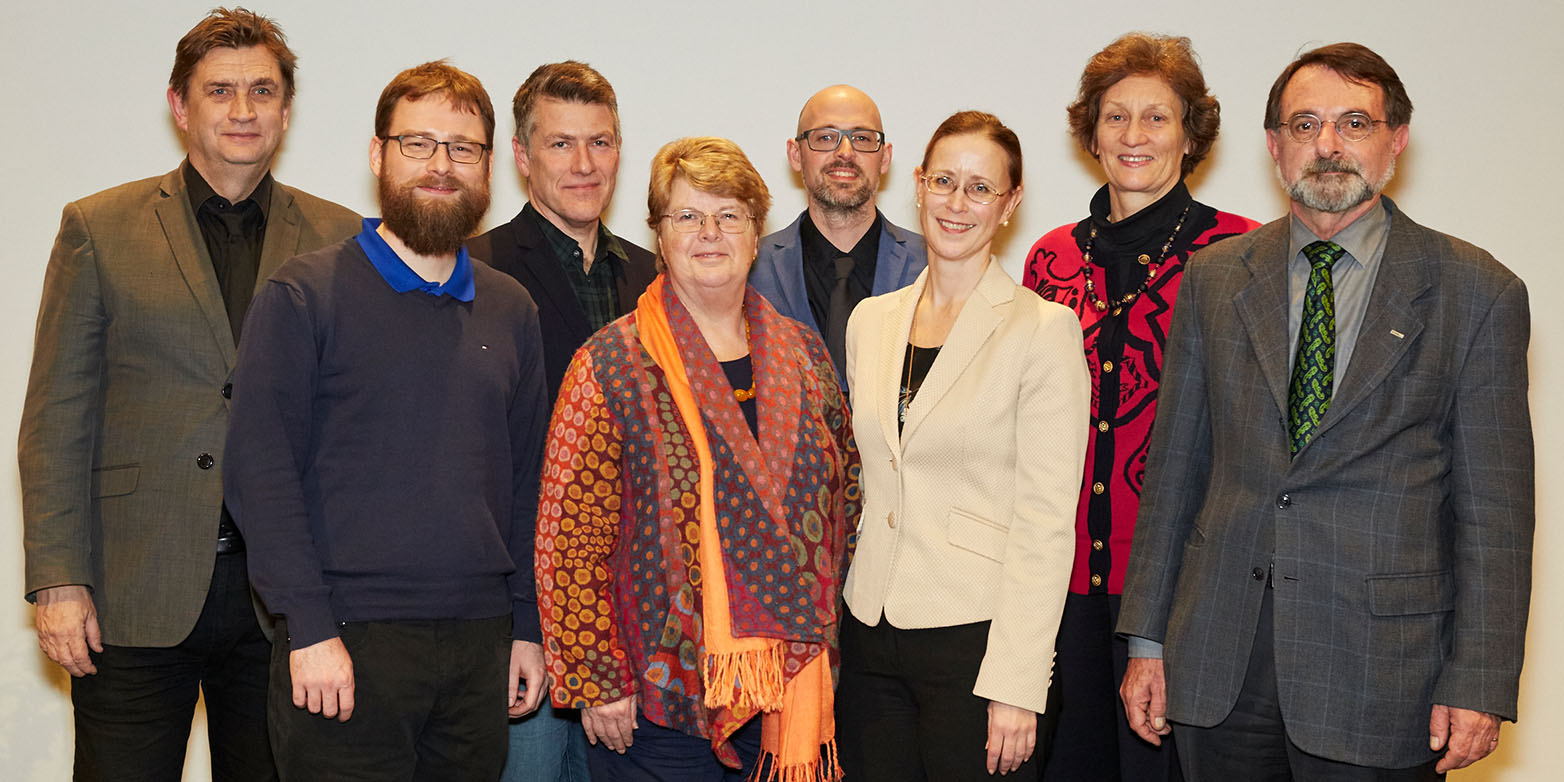Taking doctoral studies to the next level
What makes good supervision for doctoral students? What factors define the relationship between the supervisor and the doctoral student? A two-day symposium was held last week at the ETH main building to answer these and many other questions.
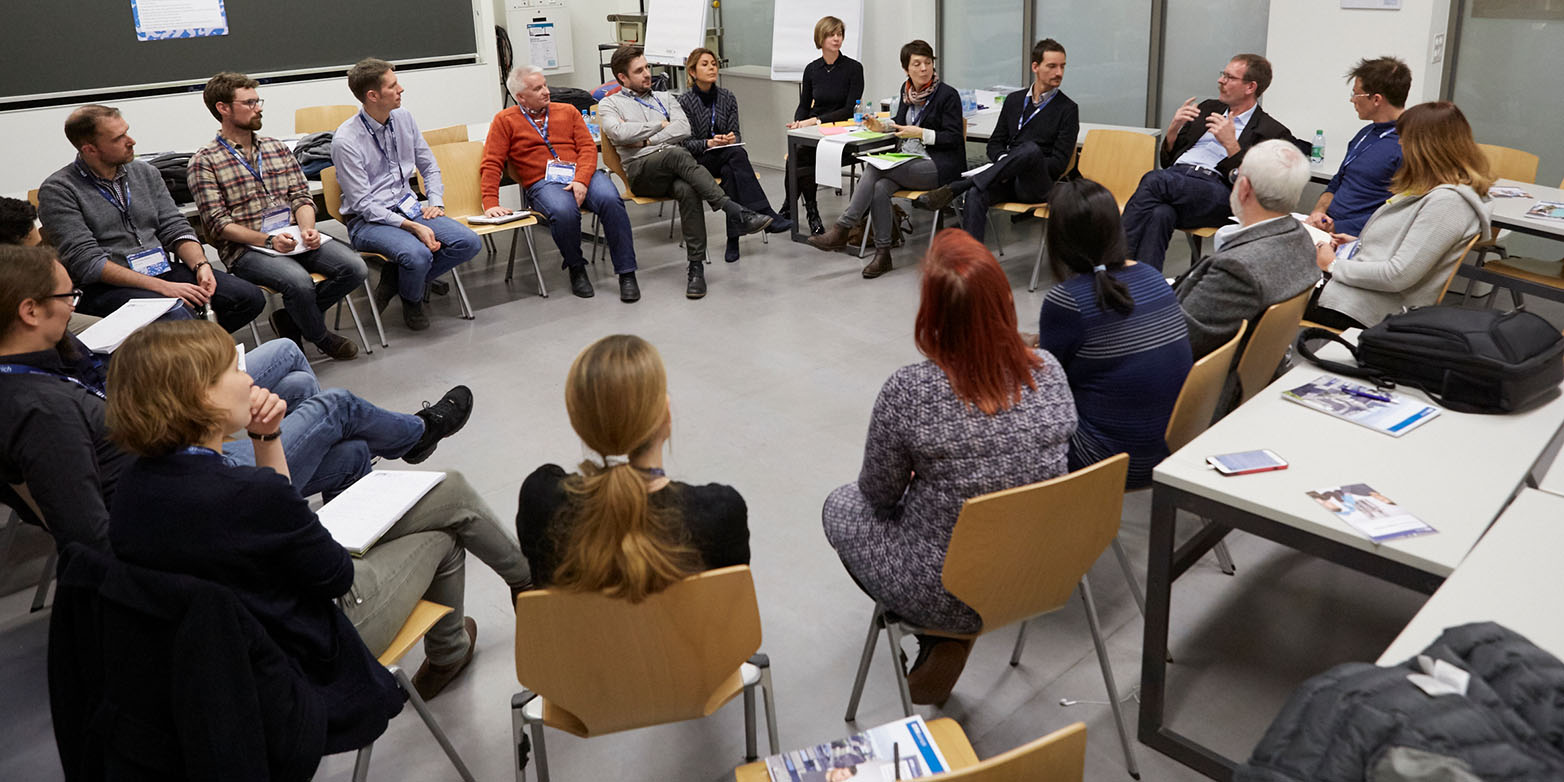
In total, 200 ETH lecturers, half of them professors at all levels, about 80 doctoral students, 60 administrators and 40 guests from universities in Switzerland and abroad accepted the invitation to attend the Doctoral Supervision symposium. The topic is generating a stir and rightly so, as doctoral studies are a pillar of research universities.
A good 4,000 doctoral students conduct research – and teach – at ETH Zurich. That makes up a fifth of all students, which is a very high percentage by international standards as well. Doctoral students play a significant role in a university’s international reputation. Yet they are also the group of ETH members who report rather low levels of satisfaction in surveys.
Doctoral studies are changing
Doctoral studies have undergone a radical transformation in recent decades. What was once considered the gateway to an academic career has increasingly become an industry career path as well. Practical projects have become more relevant and the internationalisation of doctoral programmes has led to new intercultural aspects. As a result, the standards and expectations that doctoral students have of their supervisors have changed, too – and vice versa.
“There are no tried and tested formulas for taking doctoral studies to the next level,” says ETH Rector Sarah Springman. “What is important is to meet the expectations of the different parties. At the same time, we have to consider the culture and values of our university,” she explains. “This is an ongoing process. In particular, the aim is to promote a mutual understanding between doctoral students and their supervisors.” The Doctoral Supervision symposium works towards this goal.
Professor Antonio Togni, Vice-Rector for Doctoral Studies at ETH Zurich, came up with the idea for the symposium. When he took on his position about two years ago, a new world opened up for the long-time professor of organometallic chemistry and experienced doctoral supervisor: “Before that, I didn’t know that ‘doctoral supervision’ existed as a research field in its own right,” he says. Togni was able to attract five international experts to the symposium.
Challenges facing doctoral studies
Anne Lee, a professor at the University of Stavanger in Norway and Honorary Research Fellow at the University of Bristol in the UK, presented a systematic survey of the challenges facing the field of doctoral studies. Essentially, the problem is differing expectations or perhaps even interests of supervisors and doctoral students, and their relationship. Her publication Successful Research Supervision, which is a standard reference work used by doctoral institutions, graduate schools and doctoral thesis supervisors worldwide, illustrates the various aspects of doctoral studies.
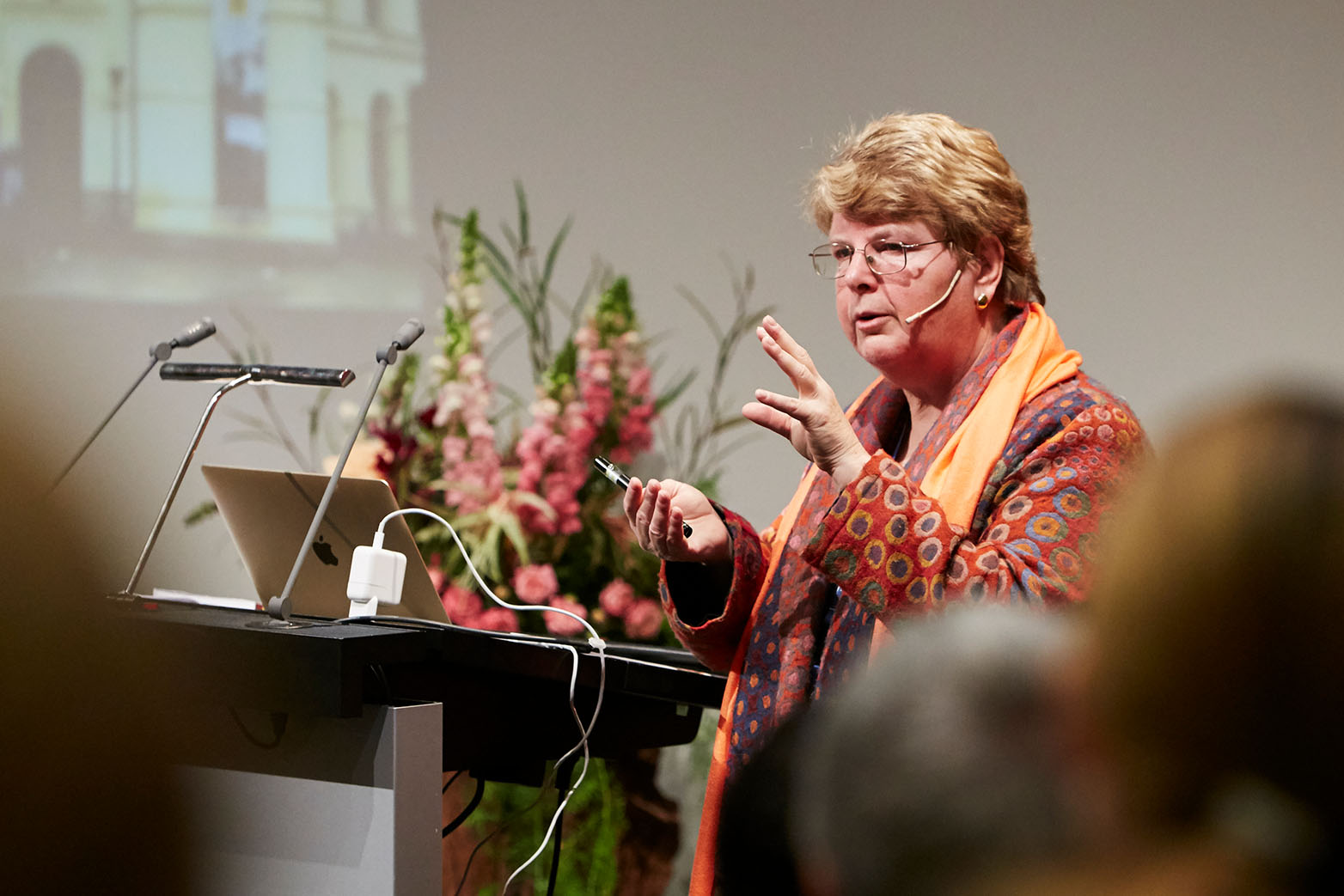
The first questions are of a functional nature: How is the relationship between the supervisor and doctoral student structured? Have milestones been defined? Do they discuss what progress has been made? Do they also discuss risks, such as if experiments do not yield any usable results, data is lost or the supervisor leaves the institution? It is also important to introduce the doctoral student to the community of researchers (“enculturation”) by encouraging them to attend conferences. Then they should find an environment in which they can grow personally. They should acquire skills of critical self-reflection and become independent from their supervisor as their doctoral studies progress. Ultimately, supervisors are also personal figures and often in the role of advisors to help students deal with problems unrelated to their doctoral studies.
The importance of ethics
Erika Löfström, a professor of educational science at the University of Helsinki and member of the Finnish National Board on Research, gave a presentation in which she demonstrated how ethical principles affect the relationship between supervisors and their doctoral students: respecting autonomy, non-discrimination, offering support, being fair and remaining honest.
According to Löfström, supervisors and students may give different weight to these principles, which can have a negative impact on the relationship. The supervisor has to focus on making sure that no one is discriminated against, but the student may place more value on the fairness, honesty and support they experience as individuals. Löfström also discovered that ignoring or placing extra focus on certain ethical principles has different outcomes. For example, autonomy and support can have a highly motivating effect, whereas neglecting these aspects can lead to burnout.
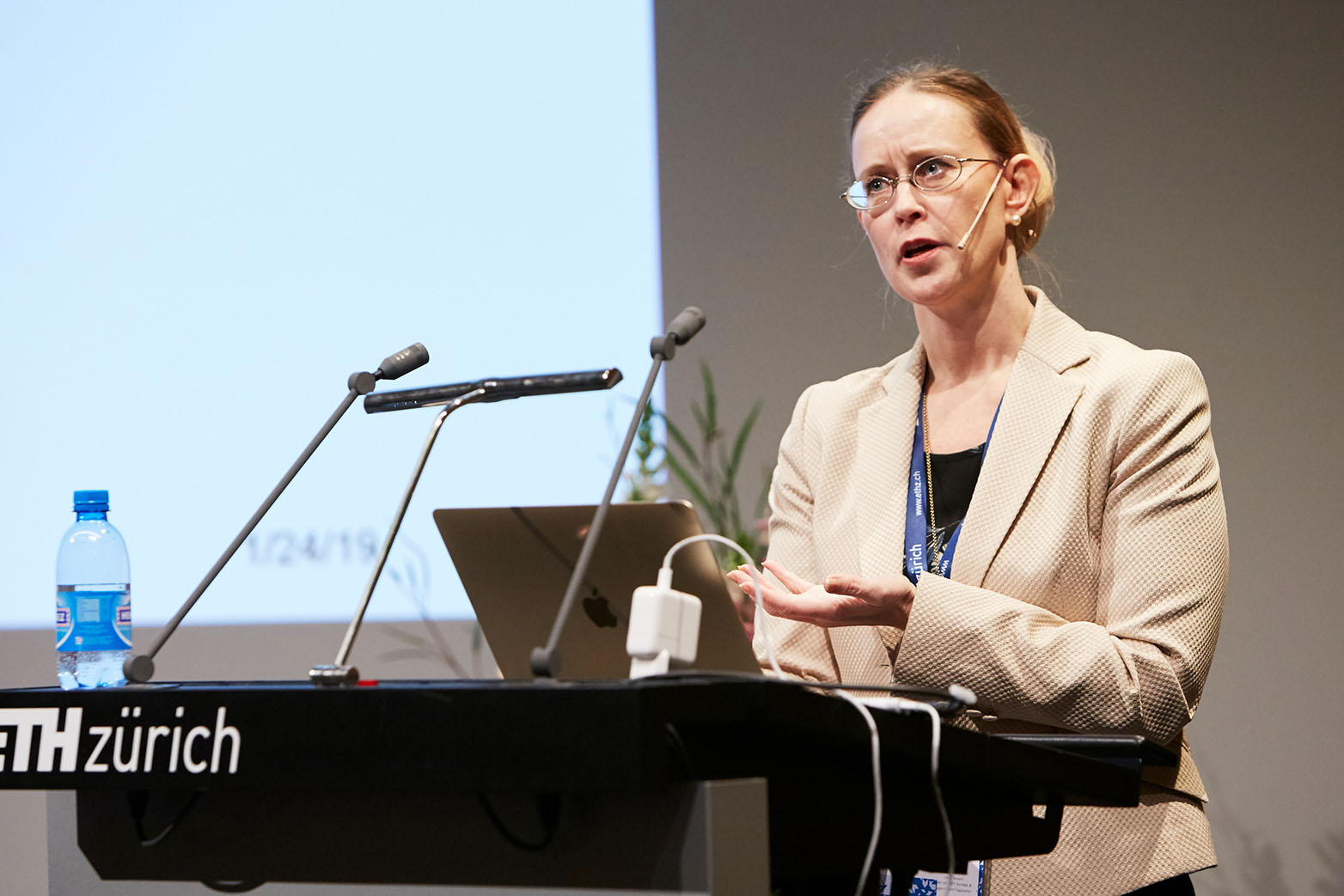
Expanding informal networks
Søren S. E. Bengtsen, professor at the Centre for Teaching Development and Digital Media at Aarhus University in Denmark, examined the less visible aspects of life as a doctoral student. On the one hand, he found that doctoral programmes are becoming much more formalised as doctoral schools increase in size and complexity, and offer more professional, technical and practical support. On the other hand, he has observed increasing numbers of doctoral candidates who feel stressed or lack direction within these structures. After all, doctoral students are more than researchers; they are people who have personal lives, too.
Bengtsen emphasised the importance of informal networks – including outside the universities – that play a key role in this. These might be “mentors” they have chosen themselves, peers they can meet with to review each other’s work, administrators, or friends and family members who can help them when they are struggling. Doctoral supervisors must be aware of these needs; they can take on one of these roles themselves or help the student to find a place in social communities or establish their own professional networks.
Learning and teaching how to be a supervisor
Two speakers from the University of Lund in Sweden reported on how courses for supervisors can lead to great success: Anders Sonesson, a senior lecturer in the educational sciences and Assistant Head of the Division for Higher Education Development, and Anders Ahlberg, a professor in the Faculty of Engineering. In 2003, both men were asked to give required courses on doctoral supervision at their university – two years before such courses were required by law throughout Sweden. It was a tough start, with numerous two-day courses that were not always well received. This led to a fundamental redesign of the courses.
Today, participants discuss practical challenges relating to supervising doctoral students, similar to the workshops offered during the symposium. In addition, they also deal with actual research-related topics and document their insights. These documents then serve as input during the next round of courses, allowing participants to expand on the various topics. Some of these results have been published in journals and even included in a book produced in collaboration with other universities and used at many Swedish universities. Although the courses are now much longer – from two to three weeks – they are very well received, including by the two lecturers themselves, who have the opportunity to learn while they teach.
An abundance of new ideas
After the presentations, participants discussed the various aspects in workshops – more than 40 over the course of two days. Lecturers, doctoral students, educational specialists and administrators shared their experiences, described challenges and discussed approaches to solutions. They also documented their insights on hundreds of flipchart sheets and sticky notes.
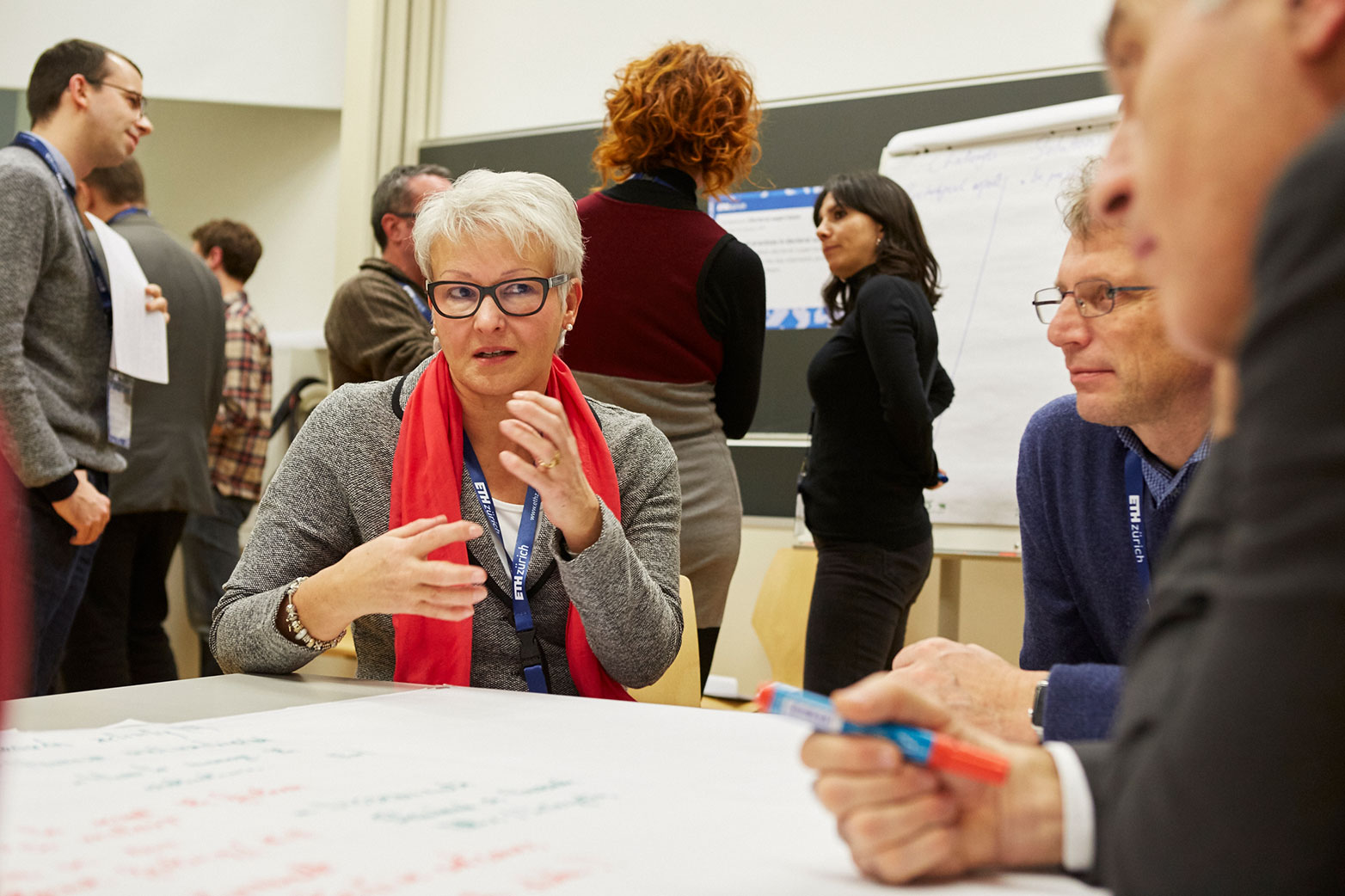
So have any specific measures emerged? As Antonio Togni says: “The focus of the symposium was not to obtain any specific results.” As a chemist, he approached the event as an experiment in which to explore the topic and share thoughts and ideas among the various groups. “But I’m absolutely delighted at how productive the discussions were, and the written documentation offers a huge source of ideas,” he says. The documentation will now be evaluated in the coming weeks and made available to the departments.
Continuing to improve doctoral studies
Springman summarises: “The symposium has raised important questions about this complex issue and has shed light on solutions.” The results are to be incorporated into the process already underway for further improving the structure of doctoral programmes at ETH. “Still, all of us will have to deal with the topic periodically, because anyone responsible for supervising doctoral students must find a way to meet their expectations and needs,” explains Springman. “Doctoral students also have to deal with these issues and take responsibility themselves,” she adds. Only in this way, she says, will ETH be among the leading universities for doctoral studies.
And what did the doctoral students think about the two-day event? “For us, it was very productive to meet all the different groups of people involved in doctoral studies, to talk about doctorate degrees and to gain some personal insights,” says Martin Roszkowski, President of the Academic Association of Scientific Staff at ETH Zurich (AVETH). The symposium showed that friction between doctoral students and supervisors can never be completely avoided, since so many different expectations and arrangements have to be taken into consideration. “Yet a relationship of trust among all parties will help foster an environment in which to share experiences and find solutions,” says Roszkowski.
The lectures are available on the ETH Zurich multimedia portal: https://www.video.ethz.ch/events/2019/supervision
